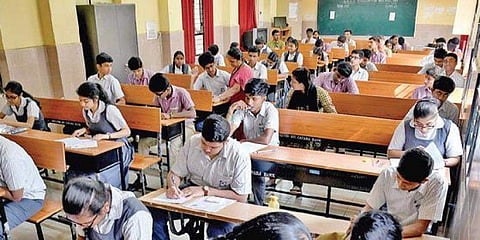

Students, especially those writing their board examination, staying away from school is becoming a cause for concern for the education department. Teachers from government and aided schools have been trying to reach parents to get their wards enrolled, but are met with disappointment each time. “Some students have been coming back in phases, and are taught the curriculum they missed from January 1, all over again. Nearly 15-20 per cent of students are yet to return to school, and most of them are migrant children who have not enrolled anywhere,” said Karnataka State High School Association president H K Manjunath.
“Parents have been avoiding calls from teachers who are following up on dropout students. Families have moved to the periphery of the city, and children have taken up small jobs, working as newspaper vendors or in ration shops to substitute for lost family income,” said a teacher from an aided school in Bengaluru North, that has seen no more than 50 per cent attendance in Grade 9 and 10. Besides this, the relief in attendance given by the education department to write the SSLC examination has dissuaded students from coming to school, teachers say.
BN Bhagya, undersecretary, secondary education department, had on February 1 issued an order that for the academic year 2020-21, students will get relief for minimum attendance for the SSLC examination.
Students were previously expected to clock 75 per cent attendance to write the examination. The decision to relieve them of compulsory attendance was taken by the principal secretary on November 25, 2020. Class 10 students started offline classes from January 1, however, attendance is not compulsory.
“Students working part-time and attending school was not uncommon. But the pandemic forced many to take up full-time jobs, with breadwinners of the family losing jobs. This urgent need to support the family, coupled with lack of continuity in education — many students couldn’t attend online classes — has kept students out of school,” said Kavita Ratna, Director Advocacy of the Concerned for Working Children.
A lot of handholding is needed for these students, she said, adding that different responses need to be adopted for children from different backgrounds — those from migrant families, and those who asked to leave childcare institutes. Their psychological security needs to be prioritised over curriculum, she said.
